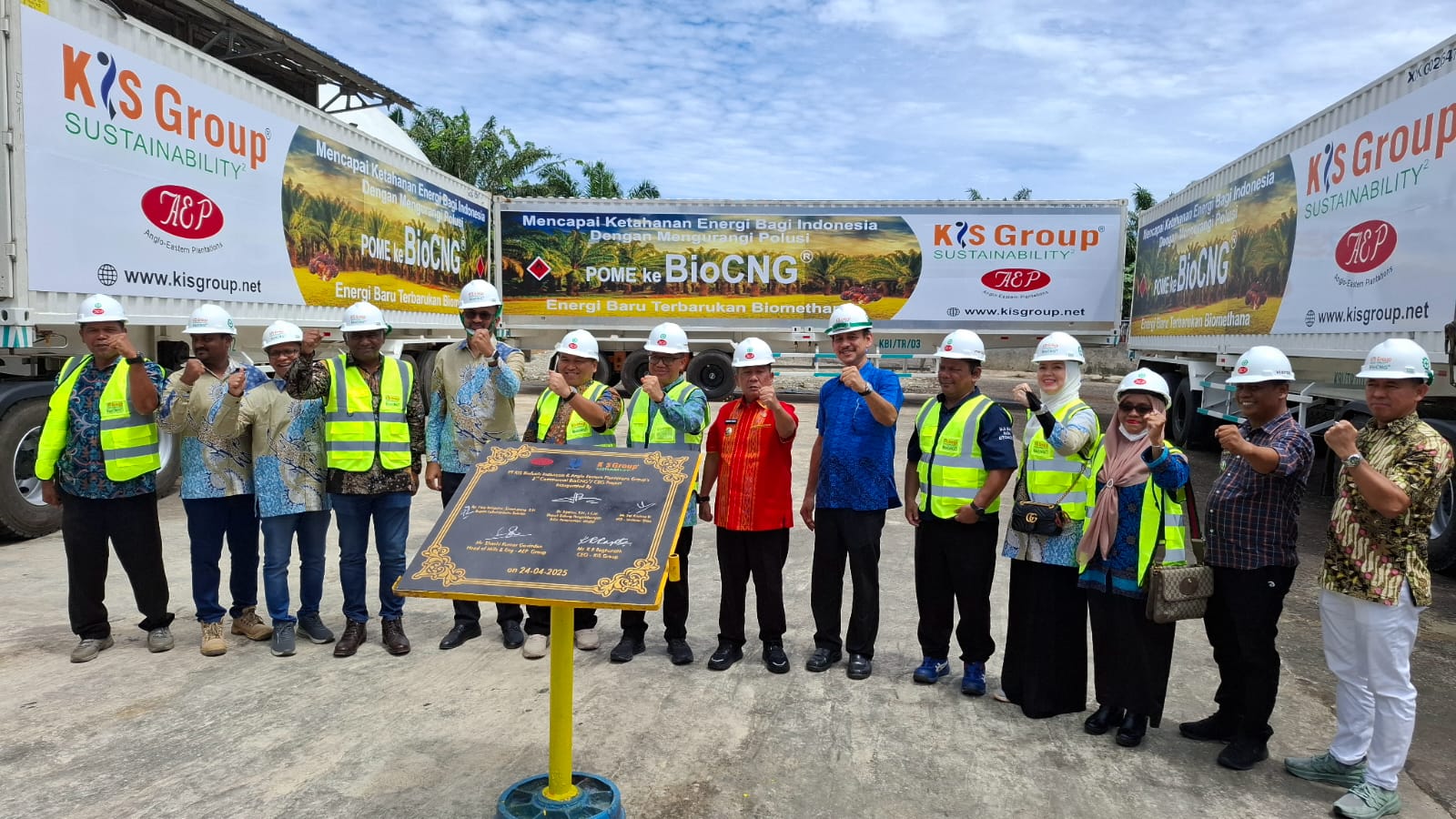Indonesia has made a major leap in its renewable energy journey with the launch of Southeast Asia's largest BioCNG plant. Officially opened in Labuhanbatu Selatan, North Sumatra, this state-of-the-art facility represents a significant step towards reducing the country's dependence on fossil fuels while addressing environmental concerns. Built through a collaboration between PT KIS Biofuels Indonesia and PT Tasik Raja, part of the Anglo Eastern Plantation (AEP) Group, the plant transforms palm oil mill effluents (POME) into clean, compressed biomethane gas, better known as BioCNG.
In an era where the global community is striving for greener energy solutions, Indonesia’s move to invest in bioenergy infrastructure is both timely and strategic. This milestone not only highlights the country’s commitment to sustainability but also sets an example for other Southeast Asian nations seeking to develop renewable energy sources.
What Makes Southeast Asia’s Largest BioCNG Plant Unique?
BioCNG is an innovative form of renewable energy derived from the treatment of organic waste materials, particularly from industries like palm oil production. The Labuhanbatu Selatan BioCNG plant is capable of producing up to 182,000 MMBtu of BioCNG per year. In simpler terms, it can replace significant amounts of conventional diesel fuel, thereby cutting down greenhouse gas emissions substantially.
The facility processes palm oil waste into clean energy, preventing methane, a powerful greenhouse gas, from being released into the atmosphere. In fact, it is estimated that this plant alone will reduce carbon dioxide (CO₂) emissions by approximately 52,000 tons annually.
Besides its environmental benefits, the project also introduces 30 new green jobs to the region, directly contributing to local economic growth. By prioritizing sustainable practices and circular economy principles, this BioCNG plant showcases how industrial waste can be transformed into valuable, eco-friendly energy.
Economic Benefits and Industrial Partnerships
One of the plant’s standout achievements is its strategic partnerships. Southeast Asia's largest BioCNG plant has already secured a major client — PT Unilever Oleochemical Indonesia. Unilever plans to use the BioCNG output to replace diesel fuel in its transportation and industrial operations, significantly shrinking its carbon footprint.
This collaboration not only benefits Unilever’s sustainability targets but also demonstrates how industries can work together to accelerate the shift towards renewable energy. The availability of a local BioCNG supply gives corporations a powerful incentive to adopt greener practices without drastically changing their operations.
Moreover, domestic BioCNG production strengthens Indonesia’s energy resilience by reducing the nation’s reliance on imported fossil fuels. As global energy markets experience volatility, local renewable energy sources like BioCNG provide a stable, long-term solution for national energy security.
A Broader Vision for Renewable Energy
The Labuhanbatu Selatan project is not a standalone venture. PT KIS Biofuels Indonesia has ambitious plans to expand its renewable energy footprint across the country. Following the success of the first and second commercial BioCNG plants, a third project is already under construction, expected to start operations by December 2025.
KIS Group has set a bold target: establishing 25 BioCNG projects by 2027 with a cumulative investment of around $125 million USD. Looking even further ahead, the group envisions developing 100 BioCNG projects by 2030, potentially involving up to $500 million USD in investments. These projects could collectively prevent the emission of millions of tons of carbon dioxide annually while creating thousands of green jobs.
This long-term strategy supports Indonesia’s broader goal of achieving net-zero emissions by 2060, as outlined in the country’s climate action commitments. Projects like Southeast Asia's largest BioCNG plant will be crucial pillars in building a cleaner, more resilient energy future.
Environmental Impact: Beyond Reducing Emissions
The importance of projects like this extends beyond just emissions reductions. The Labuhanbatu Selatan plant addresses several critical environmental issues:
- Water Pollution Reduction: By treating palm oil mill effluents (POME) instead of discharging them into the environment, the plant helps protect local water systems.
- Soil Health Preservation: Waste that could have contaminated soil is instead converted into clean energy, preserving agricultural land.
- Air Quality Improvement: Replacing diesel with BioCNG in transportation directly improves air quality, benefiting public health in surrounding communities.
Given that Indonesia is one of the world’s largest producers of palm oil, finding sustainable ways to manage palm oil waste is essential. Turning a waste management challenge into a renewable energy opportunity demonstrates the power of innovation to solve complex environmental problems.
Challenges Ahead: Scaling BioCNG in Indonesia
While the inauguration of Southeast Asia’s largest BioCNG plant is a huge achievement, scaling up BioCNG infrastructure across Indonesia will require overcoming certain challenges:
- Investment and Funding: Building more plants demands significant capital investment. Government incentives or favorable policies could encourage more private sector participation.
- Technology Adoption: BioCNG production involves advanced technologies, including specialized biogas upgrading systems. Ensuring access to this technology, along with training for local operators, is crucial.
- Public Awareness: Educating industries and the general public about the benefits of BioCNG can accelerate adoption. At present, awareness of BioCNG's potential remains relatively low outside of industrial circles.
Addressing these barriers proactively will be essential if Indonesia hopes to meet its renewable energy targets and fully capitalize on its vast organic waste resources.
Conclusion
The launch of Southeast Asia's largest BioCNG plant in Labuhanbatu Selatan is more than a milestone — it is a symbol of Indonesia's commitment to a sustainable, resilient, and cleaner future. Through innovative partnerships, smart investments, and a strong vision for expansion, BioCNG is positioned to become a critical pillar in the country's renewable energy landscape.
As Indonesia continues its journey toward energy independence and carbon neutrality, initiatives like this demonstrate that renewable energy solutions are not only environmentally sound but also economically viable. With continued support and strategic development, BioCNG could soon power industries, vehicles, and homes across the archipelago, turning today's waste into tomorrow’s sustainable energy.
Read More






 Sunday, 01-02-26
Sunday, 01-02-26







